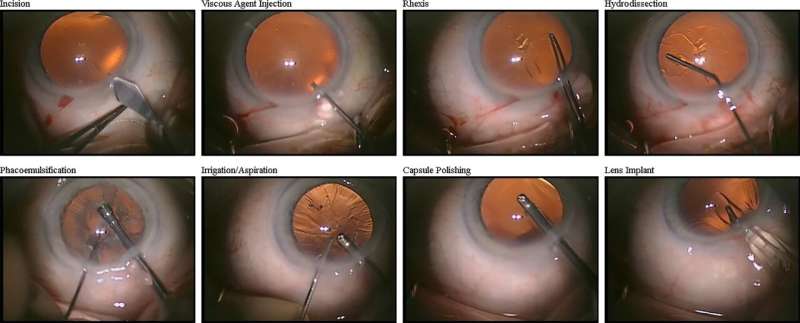Cataract surgery is the most widely performed surgical intervention of all medical specialties, featuring undeniable safety statistics. The procedure involves the removal of the cataract which is a translucent lens, and the replacement with an artificial lens.
If both eyes are affected, surgeries are usually scheduled in a staggered manner with the surgery of one eye at a time. The top-notch countries consistently conduct the most accurate and effective cataract surgeries, but this is not always true in underdeveloped areas.
Video recording is about the examination of possible mistakes in the surgery, the formation of new training techniques, and the effective implementation of the correct methods in surgery. However, the regular modality is quite unyielding in terms of time needed.
Automated video analysis by artificial intelligence (AI) has been proposed as a potential solution in the future. In projects aimed at improving cataract surgery outcomes for low-income countries, primary researchers in affiliation with University Hospital Bonn, the University of Bonn, the Sankara Eye Foundation India, and Microsoft Research India are creating artificial intelligence that will reveal the weaknesses in the currently widely used methods of this operation.
At present, there are still no such algorithms created for them. To plug this void they are looking to, in the end, enhance the quality of surgical outcomes in the Global South. Their work begins with a thorough performance evaluation of AI studies in cataract surgery, which they present in this special issue of Translational Vision Science and Technology.

Of all eye diseases, cataract is the leading cause of blindness with blinding, or vision impairment affecting about 70 million people globally and requiring more than 30 million surgeries yearly.
Dr. Maximilian Wintergerst from the UKB Eye Clinic and a member of the research group of the University of Bonn observes that an approximately tenfold increase in the number of people who become blind as a result of cataracts occurs in the nations of the Global South than in the high-income countries.
Lack of adequate training is one of the greatest causes that results in poor outcomes in cataract surgery in the Global South. Video recording facilitates reviewing procedures as well as training and is tough to access and expensive.
A common research objective is to design, create, and test an algorithm that will automatically analyze cataract surgery videos from smartphones, and this may improve the results using the same smartphone recordings.



